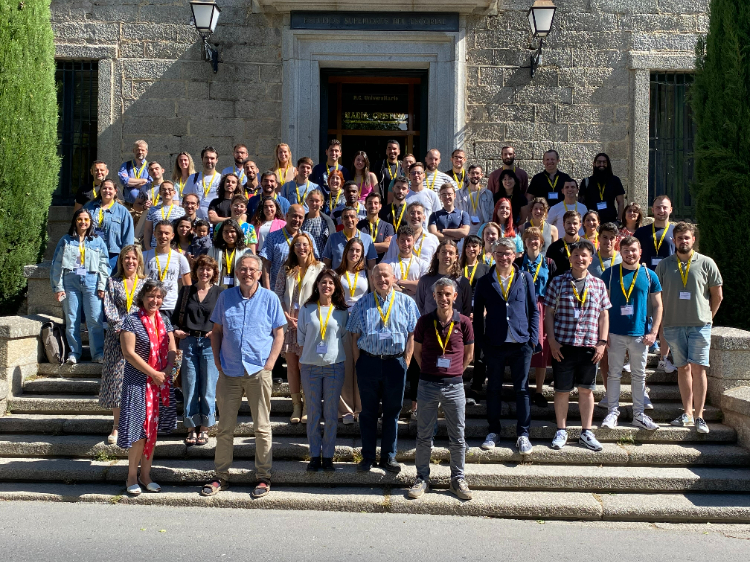
The European School on Molecular Nanoscience (ESMolNa) has demonstrated these days, with the celebration of its 16th edition in San Lorenzo de El Escorial (Madrid), some of its great virtues such as a global and international vision of molecular nanoscience, the enormous interest of students to be trained in the discipline and an ideal academic environment for learning. 62 students and more than 30 speakers from 12 different countries joined ESMolNa this year.
In its three decades of life, the European School on Molecular Nanoscience, organised in this edition by the Institute of Molecular Science (ICMol) of the Universitat de València and the Universidad Autónoma de Madrid, has established itself as a reference and high-level meeting that anticipates an intensive three-week course organised within the framework of the interuniversity .
In addition to the Universitat de València and the Autónoma de Madrid, this master's degree involves the Universities of La Laguna, Alicante, Valladolid, Castilla-La Mancha and Miguel Hernández of Elche. Master and school are, therefore, closely related and share objectives such as creating a multidisciplinary and competitive scientific community in Spain for research in Nanoscience, promoting mobility and interaction between students and contacts with research centres and companies.
The ESMolNa conferences are aimed at an audience made up mainly of postgraduates, PhD students and young postdoctoral researchers. The annual meeting provides a forum where active European scientific groups working in these areas have the opportunity to meet and discuss informally with the younger generation in areas such as supramolecular chemistry in nanoscience; molecular electronics, molecular nanomagnetism or molecule-based spintronics.
Nanoscience and Nanotechnology are disciplines that in recent decades are providing new materials and components in electronics, as well as fundamental advances and applications in physics, chemistry, molecular biology, medicine, the environment or the chemical and pharmaceutical industries.
"Our main interest is in training students in nanoscience", said Eugenio Coronado, Full Professor at the University of Valencia and director of ICMol, whose work for more than two decades has been an international reference in magnetism and molecular electronics and, more recently, molecular spintronics, quantum computing (magnetic molecules as qubits) and 2D materials. Coronado also directs the European Institute for Molecular Magnetism (EIMM).
The school's work programme features general and specialised lectures by guest speakers from the most representative European research groups active in nanoscience. In addition, students have the possibility to present 8-minute oral communications and 4-minute Flash presentations that aim to encourage debate and communication among all participants.
FATMols and 4DNMR meetings
#ESMolNa2023 kicked off its conferences last Sunday, 7 May, and closes this Thursday, 11 May. The programme included working meetings of the European projects FATMols and 4DNMR.
The FATMOLS project, funded under the EU's Future and Emerging Technologies (FET) programme, aims to build a proof-of-concept for a quantum molecular spin processor. Artificial magnetic molecules functioning as quarks, with many simultaneous quantum states, will be controlled, read and linked through uniform coupling in on-chip superconducting circuits.
The 4DNMR project is funded by the Pathfinder programme of the European Innovation Council (EIC) for highly disruptive excellent science projects. The consortium has received €3 million to develop a Nuclear Magnetic Resonance (NMR) technique to visualise the chemical structure of a single molecule, dramatically increasing the sensitivity of current technology.

